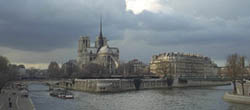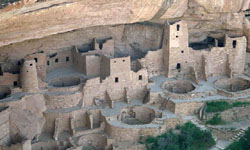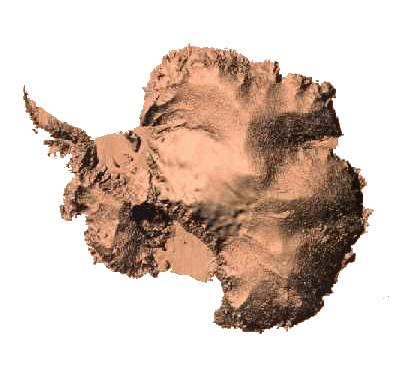Antarctica

A Complete Guide to its History, People, Cities and Culture



Photo Credits, top to bottom: Delphia, the city where visitors first arrive on the continent; Semei, on the northeast coast of Antarctica, known for its seafood, computer language industry and telekinesis experiments; Balloonists pass above the green hills surrounding Delphia, on their way back to the city; Detail of the ruins at Mimosa, where the most famous battle in Antarctican history occurred in 1403 B.C.
BUY MY BOOKS | HOME | FICTION | ESSAYS | ON-LINE DIARY | MARGINALIA | GALLERY | INTERACTIVE FEATURES | FAQ | SEARCH ENGINE | LINKS | CONTACT
www.ralphrobertmoore.com
the official website for the writings of
ralph robert moore

Government
Antarctica is not a democracy.
There are no political parties in Antarctica, no elections, no Congress nor Parliament, nor President, Prime Minister, or King. There are no laws, courthouses, attorneys, police or jails. Antarcticans have many heroes in their history, artists, discoverers, and daredevils, but there has never been any one individual who is thought of as having "led the nation", a colloquialism that has to be explained to Antarcticans.
Government in Antarctica is almost non-existent, and is what most people would consider "unofficial". What government there is, is comprised entirely of volunteers. They rarely meet.
Anyone who wishes to be a part of the Antarctican government, either on the national or local level, may do so simply by volunteering their services. The government posts the projects it is currently working on, on the Internet. People wishing to get involved in government may contact the committee working on the project, and by that contact become part of the committee. One stops being a part of the government by no longer participating in the process.
Committee "meetings" take place on Web-based bulletin boards, the full texts of which are available to the public ("public" is perhaps the wrong word to use here, since it suggests a separation between the people and their government, a populace unaware of what is happening within its own government, except for occasional "public disclosures", whereas in Antarctica full knowledge about the government's activities is readily available to all).
There is no chair to a committee. Whoever appears to have the best ideas is usually looked upon by the other committee members as the key member of that committee, and holds that status until someone with even better ideas comes along. In this regard, many outsiders, needing to put some sort of label on Antarctican government, classify it as a meritocracy.
The government has no power of enforcement, and is therefore limited to making suggestions. A recent example will illustrate the government's role in everyday life. Now that Antarctica has decided to allow visitors to its shores, one of the committees formed to aid in that effort decided to focus on devising a series of standardized symbols which could be useful to non-English-speaking visitors trying to locate restaurants, hotels, sights of interest, etc. The committee developed signs based in large part, deliberately, on symbols visitors might already be familiar with from their use for that purpose in other nations. These designs have been made available to the general populace, but there is nothing which would force Antarcticans to display the signs, or prevent them from displaying alternate signs they might think more appropriate, or no signs at all.
A question asked frequently by outsiders is if Antarcticans fear their government might be "taken over" internally, since it is so easy to become a part of the government. Antarcticans don't fear this at all. For one thing, the government is, in a sense, constantly taken over already, since the people most influential on committees tend to change fairly regularly, as senior members leave for other interests, and new members sign on. For another, Antarcticans are simply not interested in gaining power over others. Personal honor (truthfulness, kindness, helpfulness) has been such a dominant idea in Antarctican culture for so many thousands of years that to behave in a dishonorable way is something to which no Antarctican would lower himself (which in large part is why there is virtually no crime in Antarctica, and none of the infrastructure associated with crime, such as law, courts, attorneys and police). For a third, even if the government were to be violently "taken over", all present committee members assassinated and replaced, the government still has no powers of enforcement and could never gain any, and so therefore the individuals involved in the take-over would not be better positioned than before. Indeed, since government in Antarctica is based on casual cooperation rather than official institutions (of which there are none), a taken-over government would simply be ignored, and a new body of people willing to make suggestions on national or local issues would arise to take its place. (This issue is absurd to Antarcticans, since it simply would never happen, but it has been addressed here because it comes up so frequently in press conferences).
Another common question asked is if Antarcticans fear, if not a take-over from within, then at least a takeover from without. This idea would appear initially to have some merit, since the memory of the attempted invasion of Antarctica in 1403 B.C., which resulted in so many Antarctican dead (600,000 men, women and children, representing 20% of the population), and which in fact brought about the decision to create a national government, figures so prominently in Antarctican history (please see History). However, because that battle did have so strong an impact on Antarcticans, steps were taken long ago to prevent any possible invasion of the continent, using an application of nin, one of the Five Concepts (please see Beliefs), which apparently acts as a protective shield not only against armies, but also against pollution, warming effects, and all the other adverse byproducts of the rest of the world.
In addition to the national government, there are local governments at the city and village level, and regional governments for the three Hopes, and for the Great Hollow. But again, it must be cautioned that in speaking of government in terms of Antarctica, we are talking of something very different from what the rest of the world means by that word. The "government" for the Great Hollow, for example, consists of a single committee of three scholars, who have not "met" over the Internet to discuss the Great Hollow in over a decade.
When we say therefore that Antarctica is not a democracy, we mean that it is not ruled by any entity, whether it be the people themselves, or someone basing their rule on popular support, God, or the army. When Antarcticans think of their nation, they think of the forests and jungles, the cities and lakes, the mountains and shores. They do not think of it as something ruled, even by themselves.
print this article